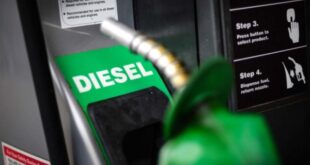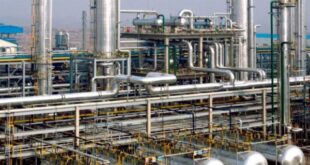As the country continues to suffer gas shortage for power plants and household cooking , industry stakeholders have raised concerns about the continued export of over 70 per cent of commercialised natural gas .
The nation ’s natural gas is exported mostly through the Nigeria LNG plant , West African Gas Pipeline , Escravos Gas – To – Liquids plant .

Last year , following the resurgence of militant attacks on oil and gas facilities in the Niger Delta , the supply of gas to the domestic market fell by 19 . 2 per cent to 307 .2 billion cubic feet , according to the latest data from the Nigerian National Petroleum Corporation.
But the volume of gas exported , only fell by 8 .1 per cent to 1 .14 trillion cubic feet , and was about 79 per cent of the nation ’s gas that was commercialised last year .
In March , a total of 101 . 07 Bcf of gas was exported while 34 .38 Bcf was supplied to the nation ’ s power sector , industries and households .

Only about 59 .87 per cent of the total gas produced that month was commercialised while the balance of 40 .13 per cent was either re – injected , used as upstream fuel gas or flared .

Nigeria has the world’s ninth largest proven gas reserves at 187 Tcf , but many of its power plants lack adequate gas supply and cooking gas consumption in the country is one of the lowest in the world.
The Chief Executive officer , GasInvest Limited , Mr. David Ige , said , “Currently , the domestic gas market is experiencing severe shortages, which is forecast to last a few more years into the future . This creates a major energy security challenge for the nation . ”
He said a disproportionate focus on the LNG export might lead to a situation similar to what “ we have in crude oil today where we remain a major exporter of crude oil and suffer shortages of products, which are then imported.”
According to the former Group Executive Director , Gas and Power , Nigerian National Petroleum Corporation, Nigeria exports about 3500 million cubic feet per day of gas in LNG and utilises less than 2000 mmcf / d domestically .
Ige said , “The shortage in the domestic market is about 1000 mmcf / d relative to known demand from power sector and industries . This gap between domestic demand and supply is forecast to grow to 2000 mmcf / d within the next four or five years .
“ If the imbalance between export LNG and domestic utilisation is not addressed , we create a gas sector that is export – oriented and a domestic market that suffers huge energy crisis .”
He suggested that focus should be in addressing the imbalance between domestic and export and in ensuring that “whatever export commitment is made does not in any way compromise the long – run energy security of the country .
According to him , no amount of revenues from export will mitigate the impact of the Gross Domestic Product loss arising from lack of adequate gas supply for electricity and industries .
In April , Australia, one of the world’s biggest liquefied natural gas exporters , said it would introduce export control restrictions to tackle an acute domestic gas shortage that was pushing up prices and threatening electricity supply and industries .
Under a new “ gas security mechanism ” due to enter into force on July 1 , the government will be able to restrict exports when it believes there is not a secure supply of gas available to domestic users.
“ In the long run , Nigeria is better off using its gas as a source of energy for its economy rather than as a source of income from international gas sales ,” the President , Nigerian Association of Energy Economics , Prof . Wumi Iledare , said .
 MMS PLUS NG – Maritime, Aviation, Business, Oil and Gas News Online Newspaper with coverage in Maritime, Oil and Gas, Aviation, Power and Energy as well as Financial News
MMS PLUS NG – Maritime, Aviation, Business, Oil and Gas News Online Newspaper with coverage in Maritime, Oil and Gas, Aviation, Power and Energy as well as Financial News








